Terrorism, trade and transit will be the three big themes at the landmark summit of an expanded South Asian Association for Regional Cooperation next week that will include Afghanistan as its eighth member.
NEW DELHI: Terrorism, trade and transit will be the three big themes at the landmark summit of an expanded South Asian Association for Regional Cooperation next week that will include Afghanistan as its eighth member.
The 14th SAARC summit, that takes place here April 3-4 at the Vigyan Bhavan convention centre, will underscore a larger global interest in the region with the United States, the European Union, China, Japan and South Korea participating as observers for the first time in the 22-year-old history of the regional grouping.
Indian Prime Minister Manmohan Singh, Pakistan Prime Minister Shaukat Aziz, Bangladesh chief advisor to the interim administration Fakhruddin Ahmed, Bhutan Prime Minister Khandu Wangchuk, Nepal Prime Minister Girija Prasad Koirala, Maldives President Maumoon Abdul Gayoom, Sri Lanka President Mahinda Rajapakse and Afghan President Hamid Karzai will attend the summit.
Foreign ministers of China, Japan and South Korea, Li Zhaoxing, Taro Aso and Song Min-soon respectively, will make brief presentations at the opening session of the summit. The US will be represented by Richard Boucher, assistant secretary of state for South and Central Asia.
The meeting of the programme committee on Friday will kick off a list of official events in the run-up to the summit.
It will be followed by the 33rd meeting of the standing committee at the level of foreign secretaries over the next two days. The Council of Ministers meet on Monday a day before the two-day summit starts.
The focus will be on making the SAARC a more efficient organisation and move it towards implementing some of the crucial regional projects that have been long under discussion, Foreign Secretary Shivshankar Menon said.
The idea is to make the next 20 years of SAARC, as Manmohan Singh said at the last summit in Dhaka, different from the previous 20 years that was mostly preoccupied in producing grand-sounding documents but had little to show by way of result on the ground.
"As India's global stature grows and its economy continues to boom, it has a greater stake in promoting economic integration in the region," SD Muni, a South Asia expert said.
SAARC leaders will discuss the contours of a South Asian University, a large part of which will be based in India, the best in the world that attract best students and best faculty. An inter-governmental agreement will be signed to form the university before the details are worked out.
Other important intra-regional projects that will be discussed include a SAARC Development Fund, a Regional Telemedicine Network and a Regional Food Bank. The summit will focus on translating these ideas into reality by formulating a time-bound plan.
The LTTE's dramatic attack on a Sri Lankan Air Force base has goaded Sri Lanka to ask for a revision of the 1987 SAARC convention on suppression of terrorism and put terrorism on top of the agenda of the SAARC summit. Rajapakse is likely to raise the issue of growing terrorism in his country and how SAARC can help him in countering it.
India will press for more intra-regional cooperation in combating the common scourge of terrorism in the region. India's concerns about terrorism in the region is directly linked to its broader agenda of promoting greater connectivity and free trade in the region.
Connectivity, physical, economic and mental, is clearly the grand overarching theme of the SAARC summit that New Delhi is hosting after 12 years.
India will push for greater connectivity in South Asia with SAARC leaders expected to discuss proposals of SAARC Multi-Modal Transport Study to enhance rail, road and air links and economic integration through the elimination of trade barriers and freer flow of ideas.
With Afghanistan's inclusion in SAARC, India will push hard for a transit to Kabul through the land route which has been a stumbling block in its trade relations with Central Asia.
India will also make a pitch for harmonising and simplifying customs procedure and standardisation to simplify transit rules in the SAARC.
According to New Delhi, these steps would help in implementing the South Asian Free Trade Agreement (SAFTA).
Pakistan's reluctance to adhere to its obligations has marred prospects of SAFTA, with New Delhi hoping that Islamabad will soon see the light and fulfil its commitment under SAFTA that became operational in July last year.
![submenu-img]() House of the Dragon season 2 trailer: Rhaenyra wages an unwinnable war against Aegon, Dance of the Dragons begins
House of the Dragon season 2 trailer: Rhaenyra wages an unwinnable war against Aegon, Dance of the Dragons begins![submenu-img]() Panchayat season 3 trailer: Jitendra Kumar returns as sachiv, Neena, Raghubir get embroiled in new political tussle
Panchayat season 3 trailer: Jitendra Kumar returns as sachiv, Neena, Raghubir get embroiled in new political tussle![submenu-img]() Apple partners up with Google against unwanted tracker, users will be alerted if…
Apple partners up with Google against unwanted tracker, users will be alerted if…![submenu-img]() Meet actress whose debut film was superhit, got married at peak of career, was left heartbroken, quit acting due to..
Meet actress whose debut film was superhit, got married at peak of career, was left heartbroken, quit acting due to..![submenu-img]() Who is the real owner of Delhi's Connaught Place and who collects rent from here?
Who is the real owner of Delhi's Connaught Place and who collects rent from here?![submenu-img]() Meet man who is 47, aspires to crack UPSC, has taken 73 Prelims, 43 Mains, Vikas Divyakirti is his...
Meet man who is 47, aspires to crack UPSC, has taken 73 Prelims, 43 Mains, Vikas Divyakirti is his...![submenu-img]() IIT graduate gets job with Rs 100 crore salary package, fired within a year, he is now working as…
IIT graduate gets job with Rs 100 crore salary package, fired within a year, he is now working as…![submenu-img]() Goa Board SSC Result 2024: GBSHSE Class 10 results to be out today; check time, direct link here
Goa Board SSC Result 2024: GBSHSE Class 10 results to be out today; check time, direct link here![submenu-img]() CUET-UG 2024 scheduled for tomorrow postponed for Delhi centres; check new exam date here
CUET-UG 2024 scheduled for tomorrow postponed for Delhi centres; check new exam date here![submenu-img]() Meet man who lost eyesight at 8, bagged record-breaking job package at Microsoft, not from IIT, NIT, VIT, his salary is…
Meet man who lost eyesight at 8, bagged record-breaking job package at Microsoft, not from IIT, NIT, VIT, his salary is…![submenu-img]() DNA Verified: Is CAA an anti-Muslim law? Centre terms news report as 'misleading'
DNA Verified: Is CAA an anti-Muslim law? Centre terms news report as 'misleading'![submenu-img]() DNA Verified: Lok Sabha Elections 2024 to be held on April 19? Know truth behind viral message
DNA Verified: Lok Sabha Elections 2024 to be held on April 19? Know truth behind viral message![submenu-img]() DNA Verified: Modi govt giving students free laptops under 'One Student One Laptop' scheme? Know truth here
DNA Verified: Modi govt giving students free laptops under 'One Student One Laptop' scheme? Know truth here![submenu-img]() DNA Verified: Shah Rukh Khan denies reports of his role in release of India's naval officers from Qatar
DNA Verified: Shah Rukh Khan denies reports of his role in release of India's naval officers from Qatar![submenu-img]() DNA Verified: Is govt providing Rs 1.6 lakh benefit to girls under PM Ladli Laxmi Yojana? Know truth
DNA Verified: Is govt providing Rs 1.6 lakh benefit to girls under PM Ladli Laxmi Yojana? Know truth![submenu-img]() Ananya Panday stuns in unseen bikini pictures in first post amid breakup reports, fans call it 'Aditya Roy Kapur's loss'
Ananya Panday stuns in unseen bikini pictures in first post amid breakup reports, fans call it 'Aditya Roy Kapur's loss'![submenu-img]() Remember Harsh Lunia? Just Mohabbat child star, here's how former actor looks now, his wife is Bollywood's popular...
Remember Harsh Lunia? Just Mohabbat child star, here's how former actor looks now, his wife is Bollywood's popular...![submenu-img]() Mother's Day 2024: Bollywood supermoms who balance motherhood, acting, and run multi-crore businesses
Mother's Day 2024: Bollywood supermoms who balance motherhood, acting, and run multi-crore businesses![submenu-img]() Rocky Aur Rani's Golu aka Anjali Anand shocks fans with drastic weight loss without gym, says fitness secret is...
Rocky Aur Rani's Golu aka Anjali Anand shocks fans with drastic weight loss without gym, says fitness secret is...![submenu-img]() In pics: Ram Charan gets mobbed by fans during his visit to Pithapuram for ‘indirect campaign’ for uncle Pawan Kalyan
In pics: Ram Charan gets mobbed by fans during his visit to Pithapuram for ‘indirect campaign’ for uncle Pawan Kalyan![submenu-img]() Haryana Political Crisis: Will 3 independent MLAs support withdrawal impact the present Nayab Saini led-BJP government?
Haryana Political Crisis: Will 3 independent MLAs support withdrawal impact the present Nayab Saini led-BJP government?![submenu-img]() DNA Explainer: Why Harvey Weinstein's rape conviction was overturned, will beleaguered Hollywood mogul get out of jail?
DNA Explainer: Why Harvey Weinstein's rape conviction was overturned, will beleaguered Hollywood mogul get out of jail?![submenu-img]() What is inheritance tax?
What is inheritance tax?![submenu-img]() DNA Explainer: What is cloud seeding which is blamed for wreaking havoc in Dubai?
DNA Explainer: What is cloud seeding which is blamed for wreaking havoc in Dubai?![submenu-img]() DNA Explainer: What is Israel's Arrow-3 defence system used to intercept Iran's missile attack?
DNA Explainer: What is Israel's Arrow-3 defence system used to intercept Iran's missile attack?![submenu-img]() House of the Dragon season 2 trailer: Rhaenyra wages an unwinnable war against Aegon, Dance of the Dragons begins
House of the Dragon season 2 trailer: Rhaenyra wages an unwinnable war against Aegon, Dance of the Dragons begins![submenu-img]() Panchayat season 3 trailer: Jitendra Kumar returns as sachiv, Neena, Raghubir get embroiled in new political tussle
Panchayat season 3 trailer: Jitendra Kumar returns as sachiv, Neena, Raghubir get embroiled in new political tussle![submenu-img]() Meet actress whose debut film was superhit, got married at peak of career, was left heartbroken, quit acting due to..
Meet actress whose debut film was superhit, got married at peak of career, was left heartbroken, quit acting due to..![submenu-img]() 'Ek actress 9 log saath leke...': Farah Khan criticises entourage culture in Bollywood
'Ek actress 9 log saath leke...': Farah Khan criticises entourage culture in Bollywood![submenu-img]() Bollywood’s 1st multi-starrer had 8 stars, makers were told not to cast Kapoors; not Sholay, Nagin, Shaan, Jaani Dushman
Bollywood’s 1st multi-starrer had 8 stars, makers were told not to cast Kapoors; not Sholay, Nagin, Shaan, Jaani Dushman![submenu-img]() Who is the real owner of Delhi's Connaught Place and who collects rent from here?
Who is the real owner of Delhi's Connaught Place and who collects rent from here?![submenu-img]() Viral video: Chinese artist's flaming 'stairway to heaven' stuns internet, watch
Viral video: Chinese artist's flaming 'stairway to heaven' stuns internet, watch![submenu-img]() Video: White House plays 'Sare Jahan Se Achha Hindustan Hamara" at AANHPI heritage month celebration
Video: White House plays 'Sare Jahan Se Achha Hindustan Hamara" at AANHPI heritage month celebration![submenu-img]() Viral video: Bear rides motorcycle sidecar in Russia, internet is stunned
Viral video: Bear rides motorcycle sidecar in Russia, internet is stunned![submenu-img]() Driver caught on camera running over female toll plaza staff on Delhi-Meerut expressway, watch video
Driver caught on camera running over female toll plaza staff on Delhi-Meerut expressway, watch video












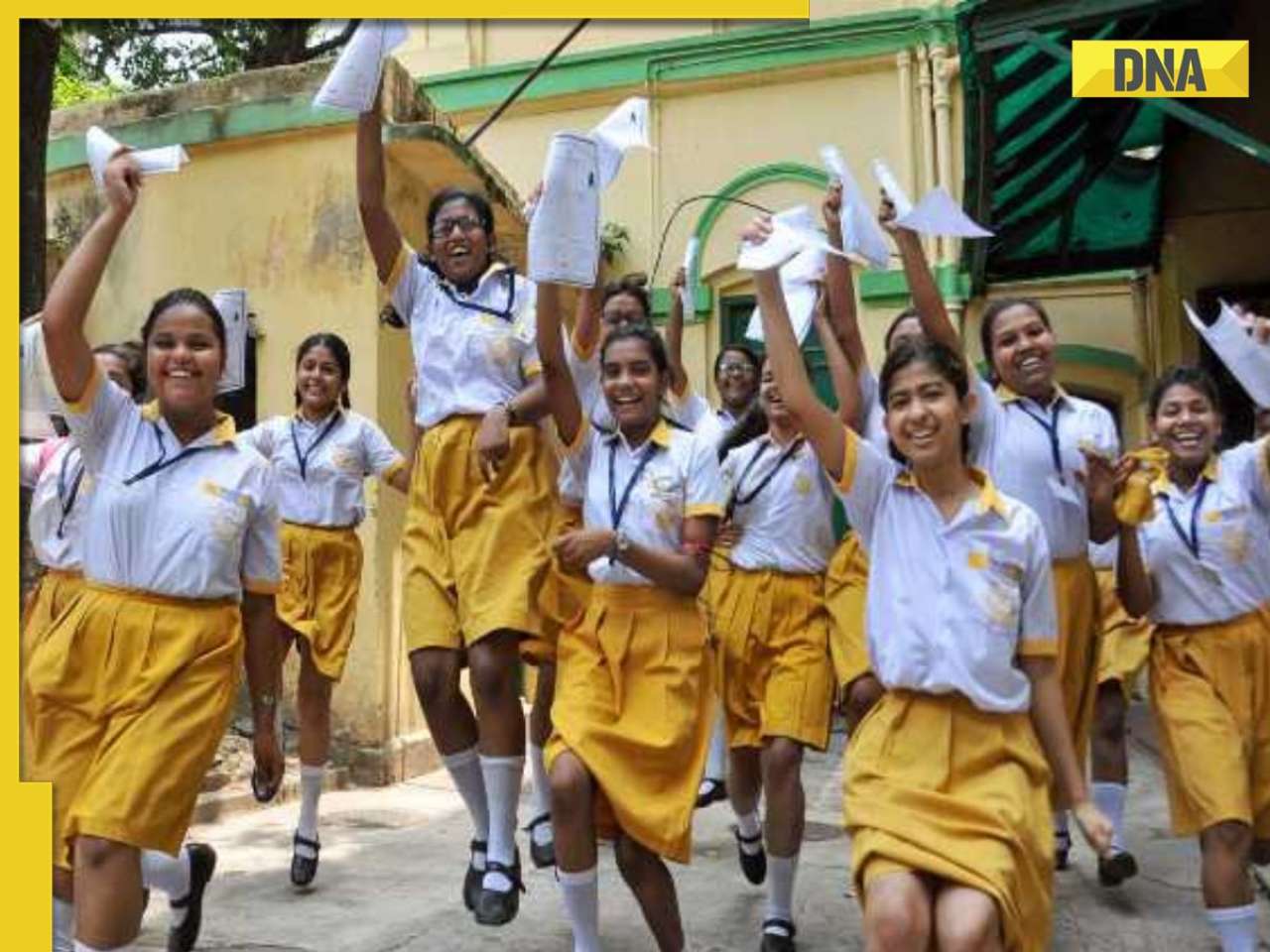
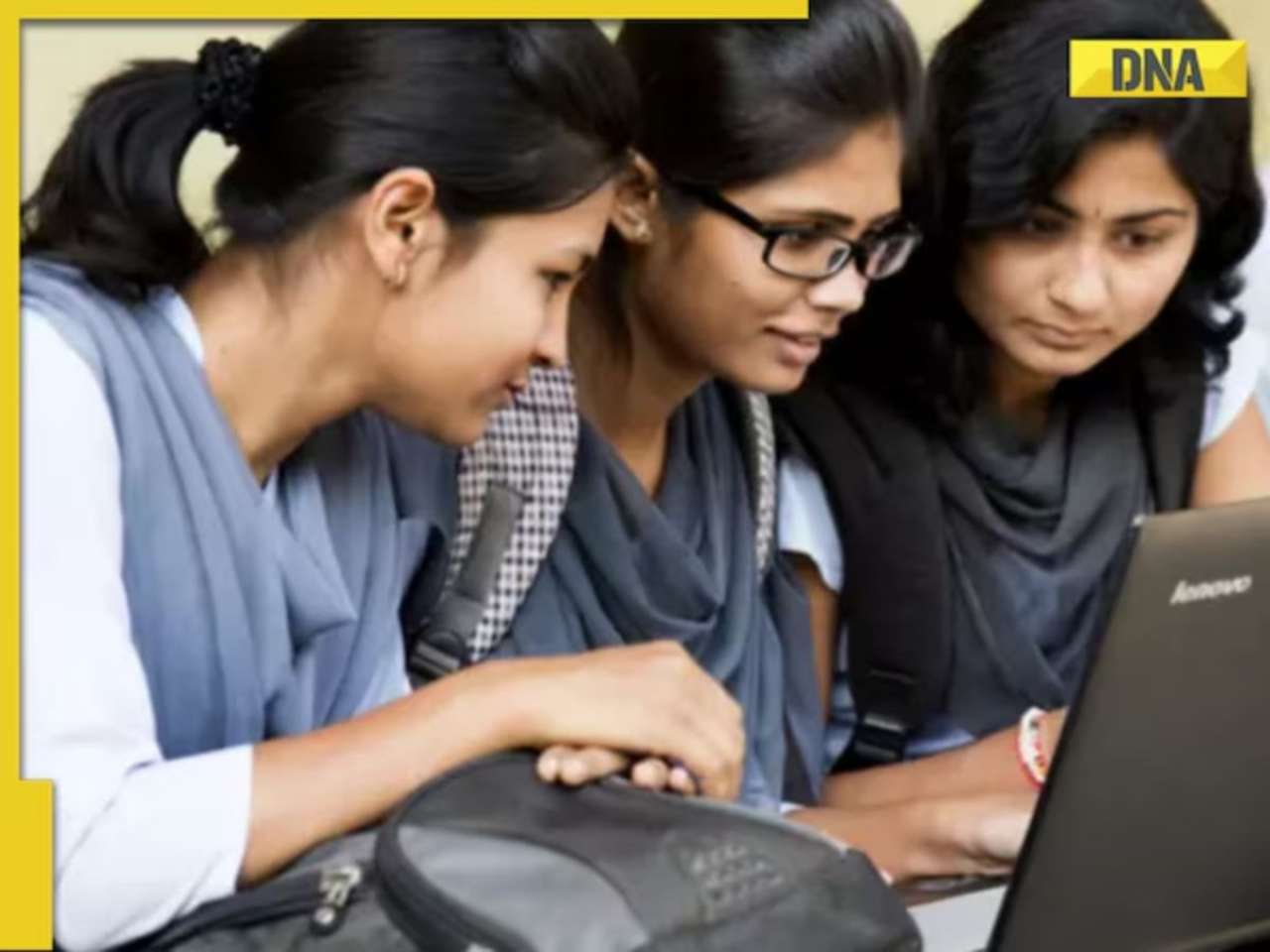
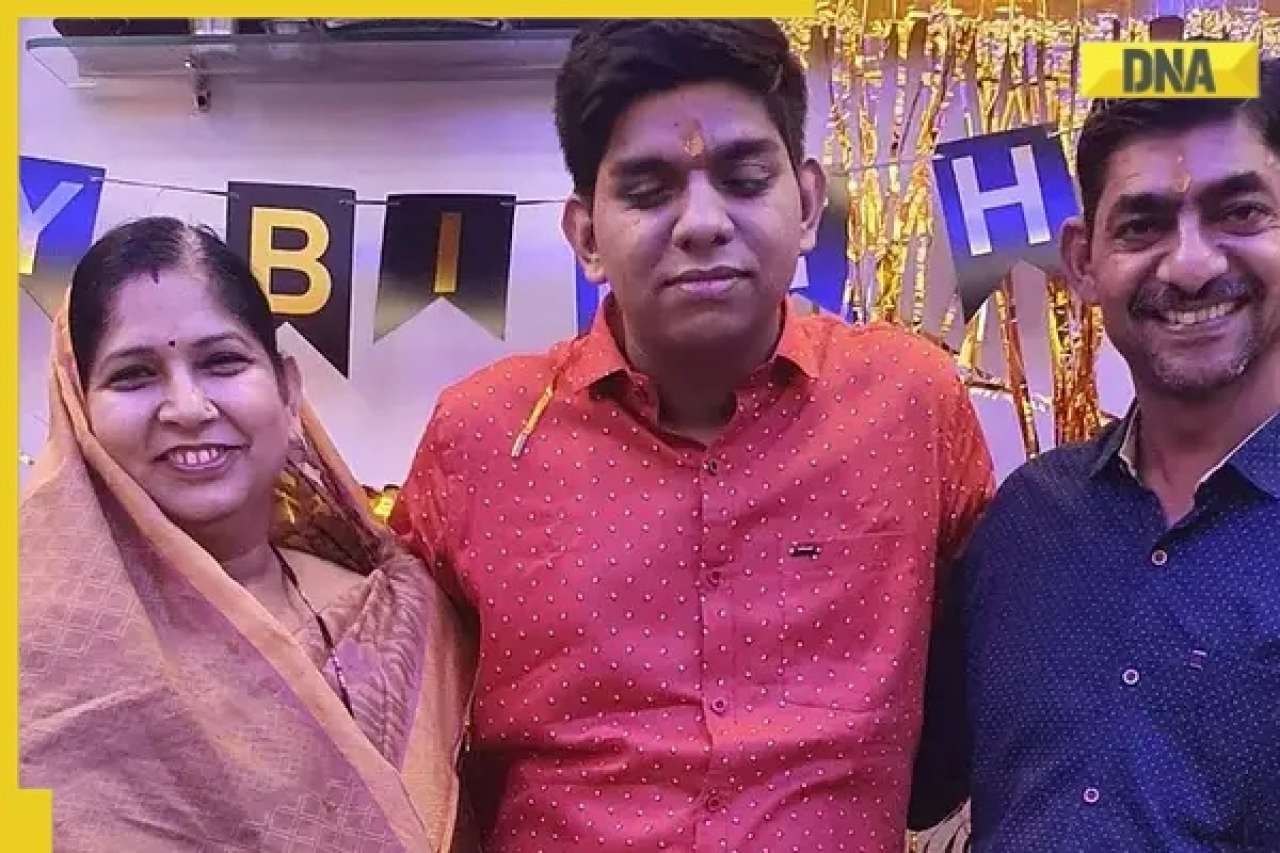


















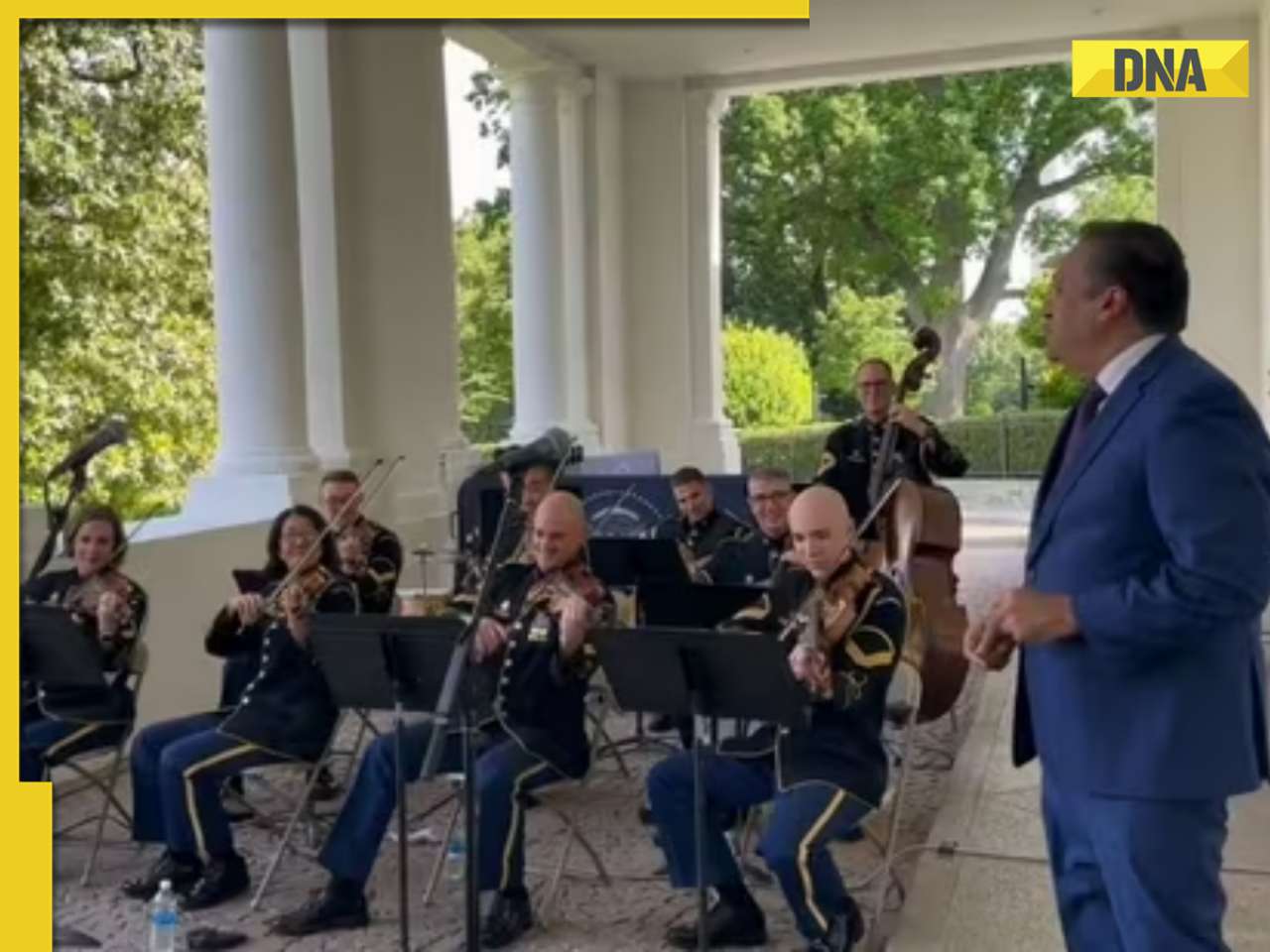











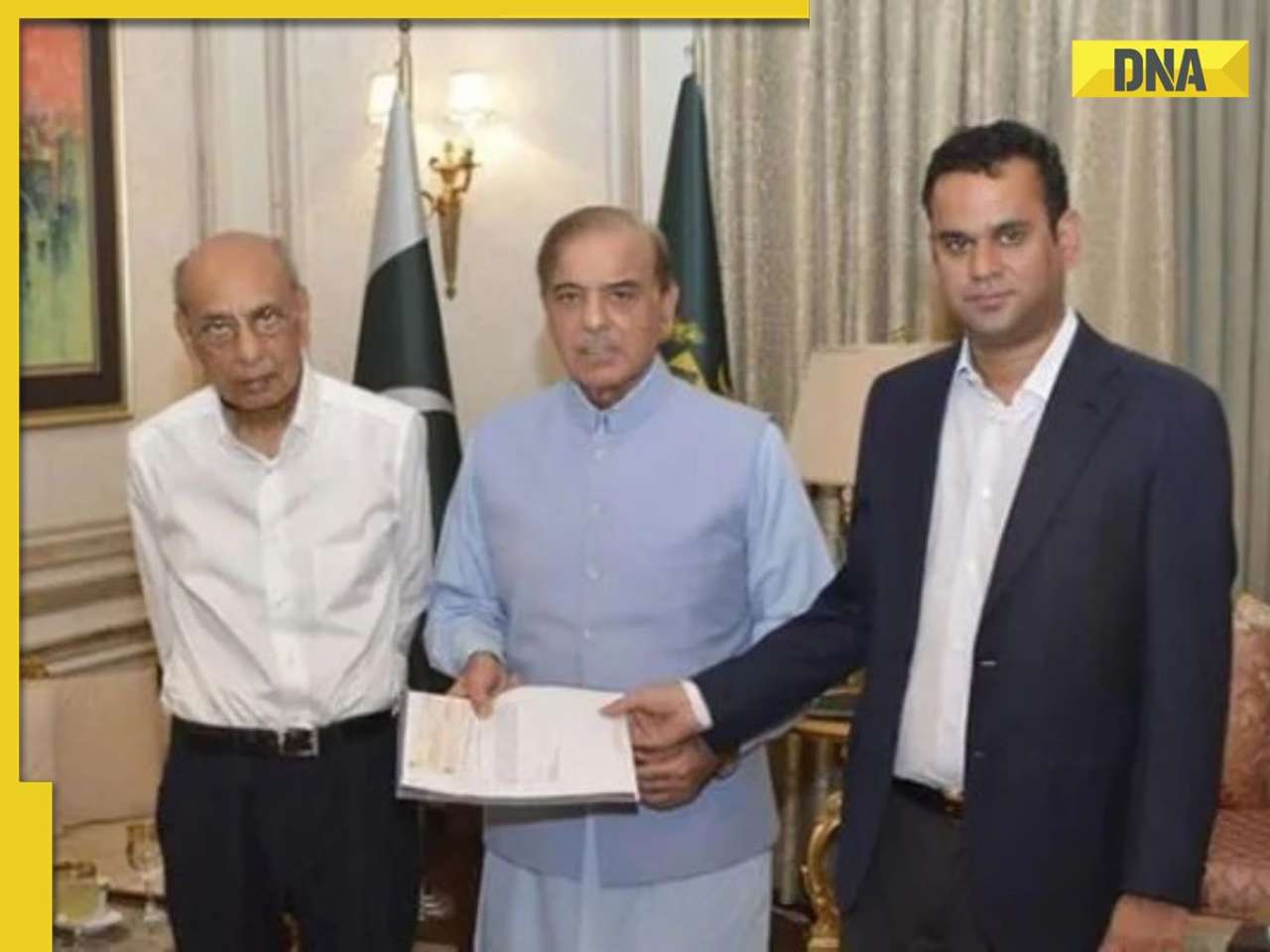









)
)
)
)
)
)